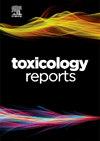探索非洲微塑料的毒理学、社会生态影响和生物降解:资源保护的潜力。
Q1 Environmental Science
引用次数: 0
摘要
在微塑料经济中实现升级回收和循环主要取决于从源头到最终用户收集和分类塑料废物,以节约资源。无论是来自包装材料还是非包装材料的微塑料,都构成了重大的环境挑战,因为它们通常不被优先收集或回收。添加剂的存在影响了塑料回收物的质量,而微塑料作为碎片的持久性仍然对水生和陆地生态系统及其生物多样性构成威胁。尽管全球对微塑料的研究越来越多,但非洲的塑料和微塑料废物管理尚未完全取得成功。考虑到处置不当、回收和升级利用干预措施有限、缺乏政策以及针对塑料废物管理违规者的严格法律,非洲的生态系统仍然受到几个社会生态因素的巨大影响,这些因素导致了水生生物的减少和压力的增加。其连锁反应包括经济活动中断、对动物/人类健康的毒性影响以及气候危机。因此,本综述提供了非洲微塑料生产和挑战的全面细节,毒理学问题,与微塑料废物管理相关的社会生态问题,以及通过回收、升级利用、生物处理及其与社会昆虫和微生物的生物降解来减轻塑料污染的方法,这些方法可能成为政策制定者和研究人员采用的基础。从而最大限度地减少非洲塑料污染的后果。本文章由计算机程序翻译,如有差异,请以英文原文为准。
Exploring the toxicology, socio-ecological impacts and biodegradation of microplastics in Africa: Potentials for resource conservation
Achieving upcycling and circularity in the microplastic economy predominantly depends on collecting and sorting plastic waste from the source to the end-user for resource conservation. Microplastics, whether from packaging or non-packaging materials, pose a significant environmental challenge as they are often not prioritized for collection or recycling initiatives. The presence of additives impedes the quality of plastic recyclates and the persistence of microplastics as shredded resultants remain a threat to the aquatic and terrestrial ecosystem and its biodiversity. Despite the increasing global research on microplastics, the success of plastic and microplastic waste management in Africa is yet to be fully attained. Considering the improper disposal, limited recycling and upcycling intervention, lack of policy, and strict laws against plastic waste management defaulters, the ecosystems in Africa remain immensely impacted by several socio-ecological factors leading to the loss of aquatic organisms through reducing fertility and increasing stress. As a ripple consequence, the disruption of economic activities, toxic effects on animal/human health, and climate crisis are among their impact. This review therefore provides comprehensive detail of microplastic production and challenges in Africa, the toxicology concerns, socio-ecological issues associated with microplastic waste management, and insight into approaches to mitigate plastic pollution through recycling, upcycling, bioprocessing and their biodegradation with social insects and microorganisms which may form the basis for adoption by policymakers and researchers, thereby minimizing the consequences of plastic pollution in Africa.
求助全文
通过发布文献求助,成功后即可免费获取论文全文。
去求助
来源期刊

Toxicology Reports
Environmental Science-Health, Toxicology and Mutagenesis
CiteScore
7.60
自引率
0.00%
发文量
228
审稿时长
11 weeks
 求助内容:
求助内容: 应助结果提醒方式:
应助结果提醒方式:


